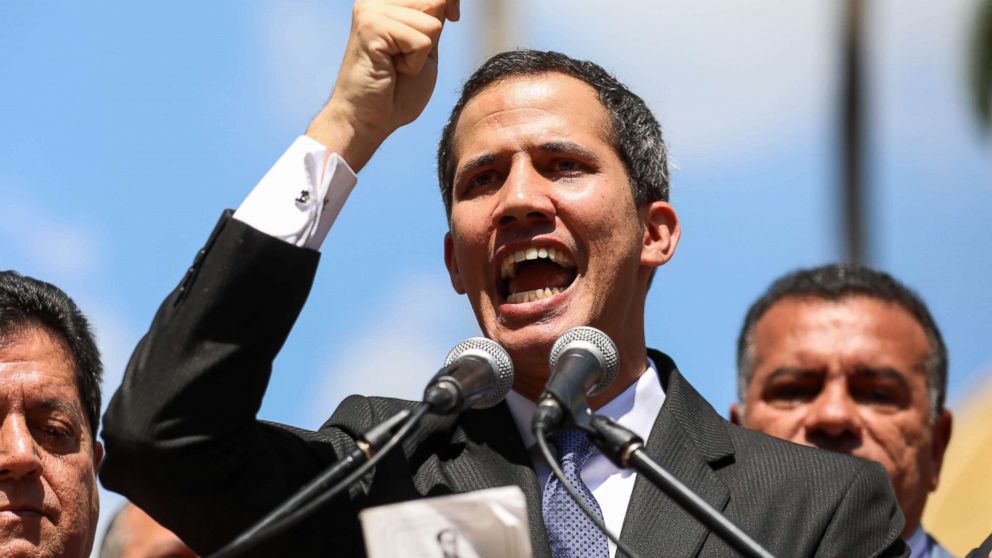[ad_1]
As Venezuelans commemorated the 61st anniversary of an uprising that saw one of the country’s worst dictators dethroned, U.S. President Donald Trump declared Nicolas Maduro’s presidency “illegitimate” on Wednesday and encouraged other Western Hemisphere countries to recognize opposition leader Juan Guaido as interim president.
The announcement comes amid some measure of chaos in Venezuala, where people all over the country are taking to the streets to protest Maduro’s presidency — days after his second term in office began following elections that were criticized by Venezuelans and the international community as illegitimate.
In the Oval Office on Wednesday, Trump warned that his administration had “all options” on the table on how to further respond.
“We’re not considering anything, but all options are on the table,” Trump told reporters. “All options, always. All options are on the table.”
Earlier in the day, the White House released a statement by him calling Venezuela’s National Assembly “the only legitimate branch of government duly elected by the Venezuelan people.”
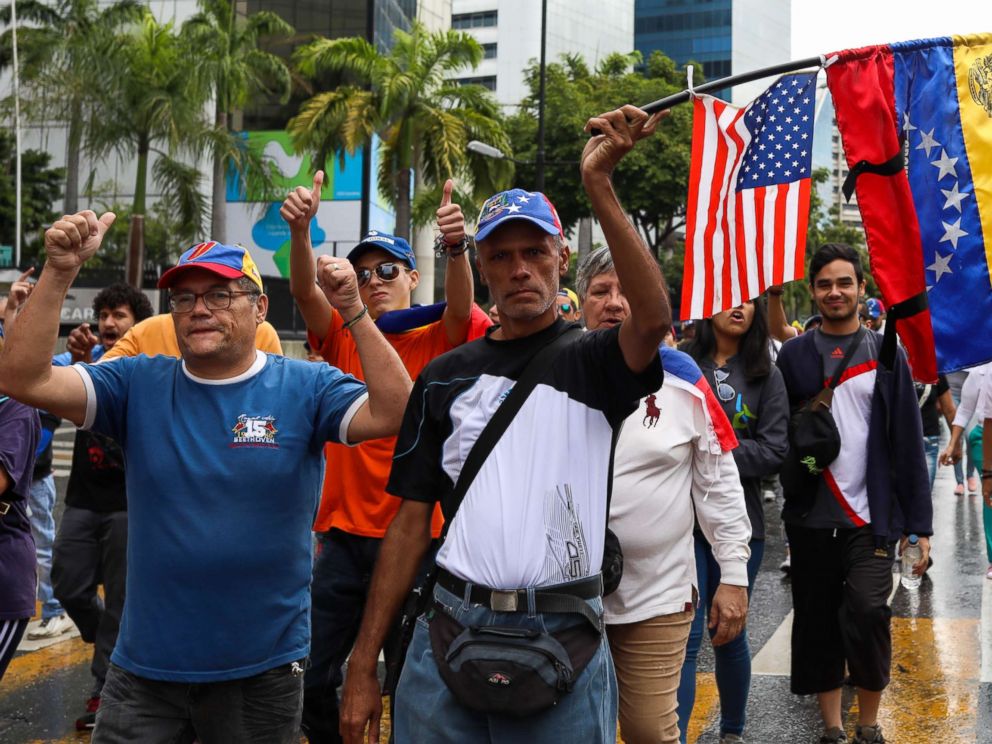 Cristian Hernandez/EPA via Shutterstock
Cristian Hernandez/EPA via Shutterstock“The people of Venezuela have courageously spoken out against Maduro and his regime and demanded freedom and the rule of law,” the statement said. “We continue to hold the illegitimate Maduro regime directly responsible for any threats it may pose to the safety of the Venezualan people.”
Maduro responded by breaking relations with the U.S. and ordering all American diplomats to leave the country within 72 hours. Given that the U.S. no longer recognizes Maduro’s authority, it is unclear whether they would comply. The State Department did not immediately respond to a request for comment.
Since Maduro took power after Chavez’s death, the country has experienced a rapid decline in what was already a struggling economy.
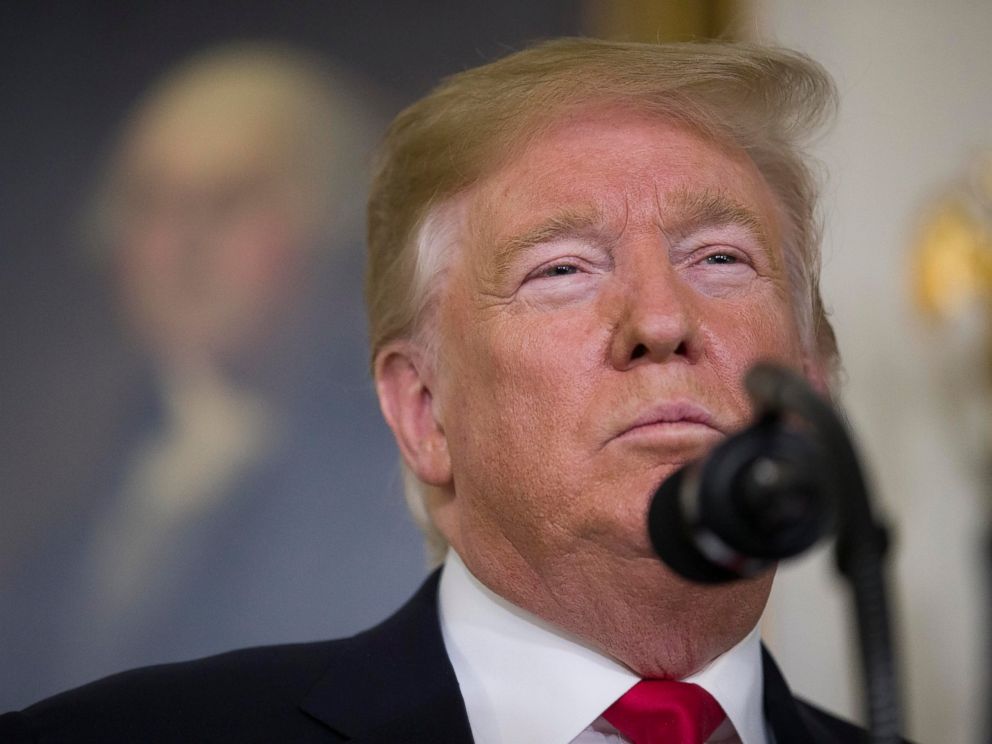 AP
APVenezuela has been undergoing an unprecedented crisis, with hyperinflation hitting 80,000 percent by the end of 2018, according to Forbes. Since 2014, more than three million people have left the country amid the deepening economic crisis, and food and medicine shortages continue, according to the United Nations.
“
”
We’ve barely scratched the surface of what actions the United States can take from an economic sanctions front. If they choose the route of violence and seek to usurp the constitutional order and democracy, let us be clear that we have a host of options and we will take every one of those options seriously..
Maduro’s reign has also been plagued by political oppression and crackdowns on activism and protest activity. More than 12,500 people have been arrested while attending a protest, according to Foro Penal, a Venezuelan human rights watchdog organization.
The U.S. has responded to that crackdown with increasingly-sharp sanctions — even sanctioning Maduro himself. But a senior administration official warned Wednesday that there would be more pressure to come.
“We’ve barely scratched the surface of what actions the United States can take from an economic sanctions front,” the official told reporters during a background briefing, adding, “If they choose the route of violence and seek to usurp the constitutional order and democracy, let us be clear that we have a host of options and we will take every one of those options seriously.”
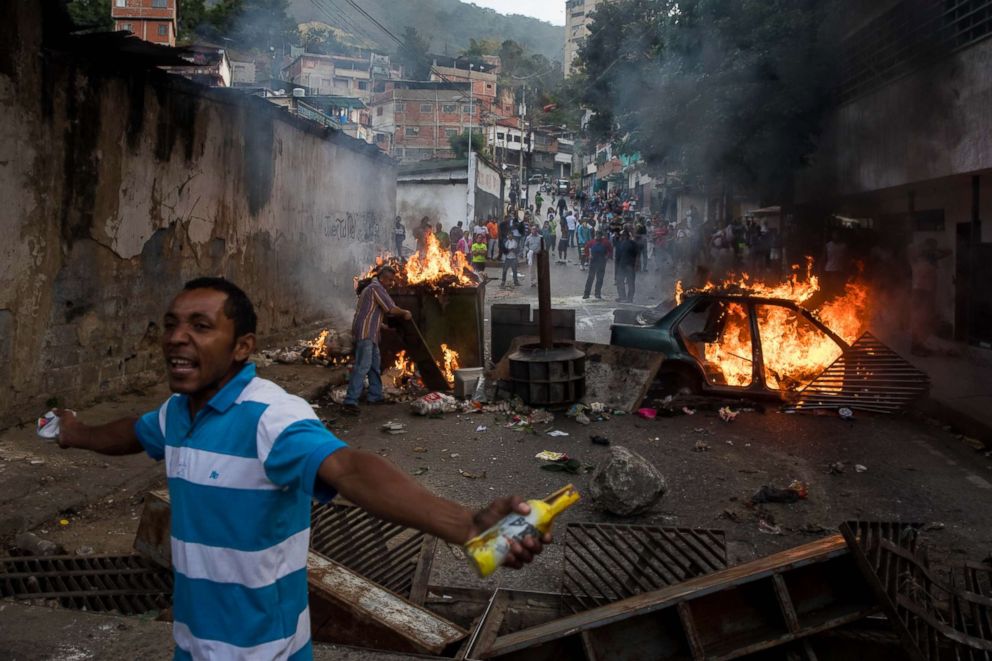 Miguel Gutierrez/EPA via Shutterstock
Miguel Gutierrez/EPA via ShutterstockBut the country’s opposition has been emboldened by Guaido, the new president of the National Assembly who, with only six days in office, said he was ready to become acting president of the country until legitimate elections could be held. He also asked for military support to do so.
“
”
Nicolas Maduro is a dictator with no legitimate claim to power. He has never won the presidency in a free and fair election and has maintained his grip of power by imprisoning anyone who dares to oppose him.
Venezuela’s opposition has been broadcasting Wednesday’s planned protests for weeks. In parts of the country, people took to the streets as early as Monday, leading to the arrest of 43 people in just 48 hours.
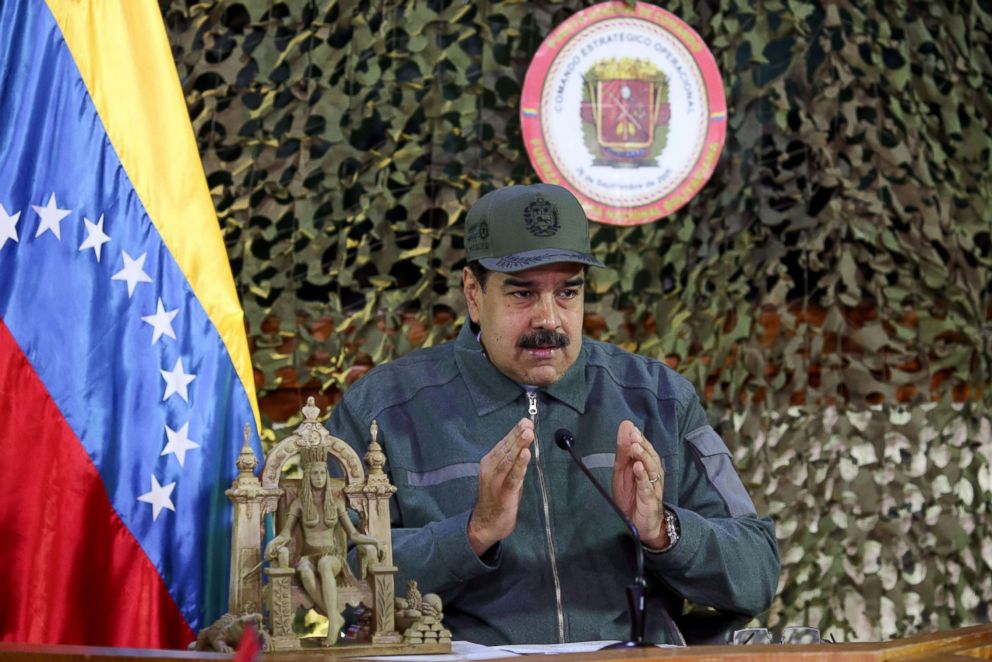 Marcelo Garcia/AFP/Getty Images
Marcelo Garcia/AFP/Getty ImagesAlfredo Romero, executive director of Foro Penal, confirmed the arrests to ABC News, adding that some of those detained are injured.
While the crisis in Venezuela has spiraled into chaos in the last several months, Guaido has emerged as a leader of the opposition after being elected president in December 2018.
The National Assembly voted to declare Maduro illegitimate and remove him from office this month, allowing Guaido to be chosen as acting head of state.
In a statement released on Wednesday, U.S. Secretary of State Mike Pompeo called on Maduro to step aside.
“The Venezuelan people have suffered long enough under Nicolas Maduro’s disastrous dictatorship,” the statement begins. “We call on Maduro to step aside in favor of a legitimate leader reflecting the will of the Venezuelan people. The United States supports President Guaido as he establishes a transitional government, and leads Venezuela, as the country prepares for free and fair elections. We urge all Venezuelans to support peacefully this democratic process, as granted in the 1999 Constitution.”
“We will work closely with the legitimately elected National Assembly to facilitate the transition of Venezuela back to democracy and the rule of law, consistent with the Inter-American Democratic Charter,” the Pompeo statement continues.
“
”
The Venezuelan people have suffered long enough under Nicolas Maduro’s disastrous dictatorship.
“The Venezuelan people are clamoring for a free and democratic Venezuela,” Pompeo said in the statement. “As we have said before, the United States, with the international community, including the Organization of American States, the Lima Group, and the European Union, support the Venezuelan people as they seek to restore their democracy. We repeat our call to the Venezuelan military and security forces to support democracy and protect all Venezuelan citizens.
“The new Venezuelan government carries the flame of democracy on behalf of Venezuela. The United States pledges our continued support to President Guaido, the National Assembly, and the Venezuelan people.”
Trump’s and Pompeo’s declarations come a day after Vice President Mike Pence made a similar statement, addressing the people of Venezuela through a video posted to Twitter.
“Nicolas Maduro is a dictator with no legitimate claim to power,” Pence said in his address. “He has never won the presidency in a free and fair election and has maintained his grip of power by imprisoning anyone who dares to oppose him.”
“The United States joins with all freedom-loving nations in recognizing your National Assembly as the last vestige of democracy in your country, for it is the only body elected by you, the people,” Pence said.
“As such, the United States supports the courageous decision by Juan Guaido, the President of the National Assembly, to assert that body’s constitutional powers, declare Maduro a usurper, and call for the establishment of a transitional government.”
ABC News’ Meredith McGraw contributed to this report.
[ad_2]
Source link

